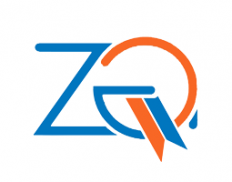Share
Print

The Zambia Qualifications Authority Act No. 13 of 2011 was enacted by the Government of the Republic of Zambia to “provide for the development and implementation of a national qualifications framework; establish the Zambia Qualifications Authority; provide measures to ensure that standards and registered qualifications are internationally comparable; and provide for matters connected with, or incidental to the foregoing”.
The Zambia Qualifications Authority was operationalised in October 2014 as a statutory body under the Ministry of Higher Education. The functions of the Authority are to:(a) develop, oversee and maintain a national qualification framework for Zambia;
(b) develop and implement policy and criteria, after consultation with the appropriate authority, for the development,accreditation and publication of qualifications and part-qualifications, which shall include the following requirements:
(i) the relevant sub-framework shall be identified on any document relating to the accreditation and publication of a qualification or part – qualification; and
(ii) each sub-framework shall have a distinct nomenclature for its qualification types which is appropriate to the relevant sub-framework and consistent with international practice;
(c) accredit a qualification or part-qualification recommended by an appropriate authority if it meets the relevant criteria;
(d) develop policy and criteria after consultation with the appropriate authorities for assessment, recognition of prior learning and credit accumulation and transfer;
(e) develop the content of level descriptors for each level of the Framework and reach agreement on the content with the appropriate authorities;
(f) publish the agreed level descriptors in the Gazette and ensure that the levels remain current and appropriate;
(g) ensure that standards and accredited qualifications are internationally comparable;
(h) determine national standards for any occupation;
(i) recognise and validate competencies for purposes of certification obtained outside the formal education and training systems;
(j) recognise and validate competencies for purposes of certification obtained outside the country;
(k) collaborate with its international counterparts on all matters of mutual interest concerning qualification frameworks;
(l) keep a database of learning achievements in Zambia;
(m) advise the Minister on matters pertaining to the Framework; and
(n) do all such things as are necessary or conclusive for the achievement of the purposes of this Act.
